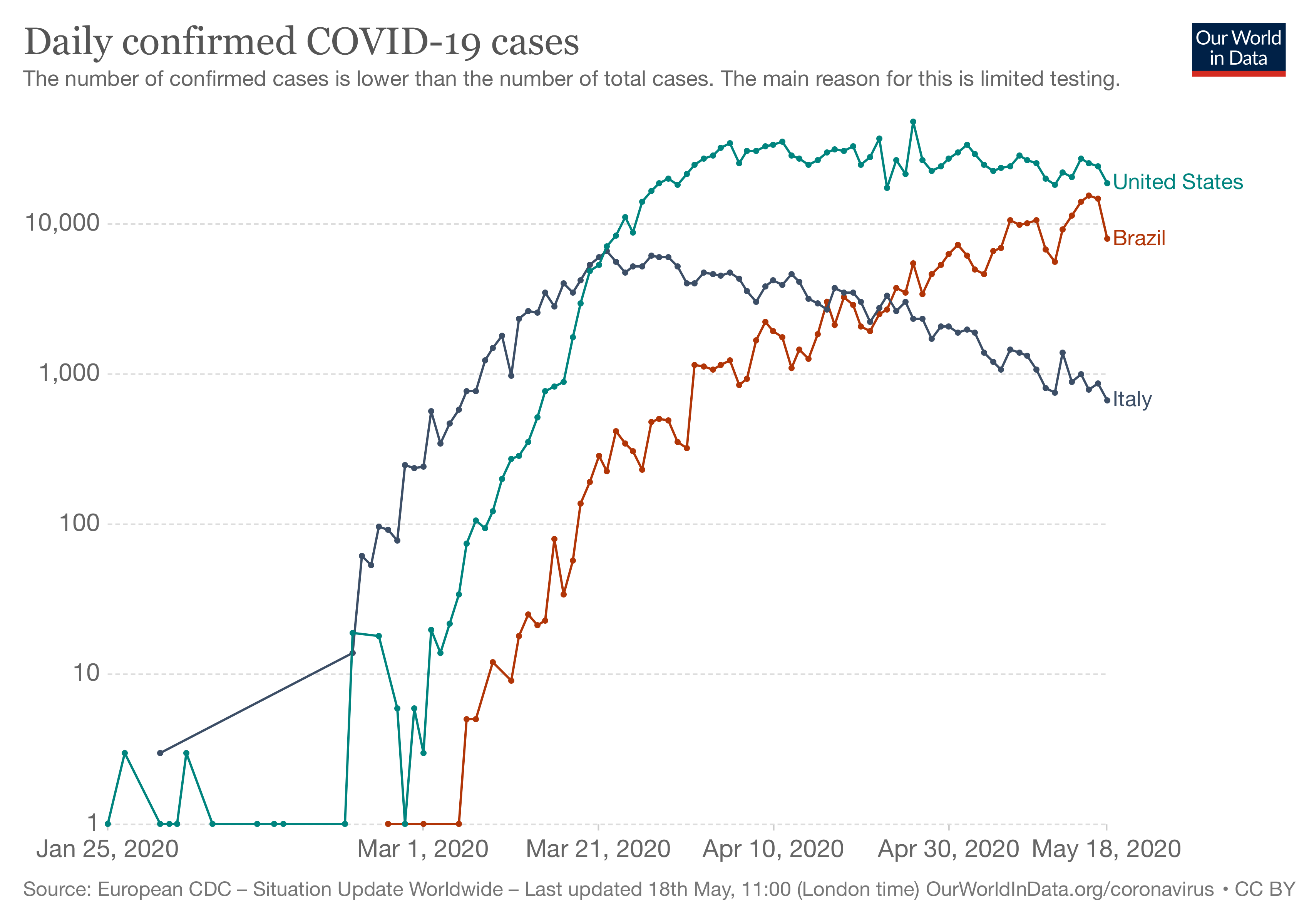
Brazil's second health minister exits and the pandemic is far from over
Nelson Teich, who was barely a month old as Brazil's health minister, resigned his post while the pandemic is only getting worse.
Just one month ago, Brazilian President Jair Bolsonaro dismissed Henrique Mandetta from his post as health minister after Mandetta said in an interview on TV Globo Mandetta that he hoped he and the president could have a clear and unified speech to respond to the pandemic.
In his place, Bolsonaro positioned Nelson Teich, an oncologist with no political experience, who tried to keep a lower profile than his predecessor - who held daily press conferences, based on science, to inform the population and always advocated containment measures such as social distancing and quarantine.
In the press conference in which he announced his resignation, Teich did not give an explanation for his departure. He said that life was made of choices, now he had chosen to leave, and that at the moment he accepted the job he had done so because he hoped to be able to help Brazilians.
At the moment it is not known who will take over, but it would be expected that Bolsonaro would appoint someone willing to follow his tendency to push for the reopening of the economy at any cost.
Last week, Bolsonaro declared beauty salons and gyms to be essential sectors of the economy, opening the door for them to resume their functions.
RELATED CONTENT
Meanwhile, in a country that historically had led efficient responses to pandemics such as HIV - producing its own generic version of the drug and thus forcing prices down - or Zika - creating mosquitoes genetically modified to make reproduction impossible - it has been one of the worst responders to the COVID-19 pandemic in the region, with a severity that may only be surpassed by the case of Nicaragua, which announced that it has not and will not establish any kind of quarantine or restriction on the mobility of citizens from other countries.
To date, Brazil is the fourth country with the most cases of COVID-19 reported - after the United States, Russia and the United Kingdom - with 245,595, 16,370 deaths and 94,122 people recovered and a daily rate of new cases reported that shows no signs of decreasing.
This, in turn, may make the blow to the continent's largest economy more devastating and its recovery slower. Especially in the absence of a coordinated response from the federal government, containment measures taken by states have been uneven, which may facilitate the emergence of new outbreaks once the pandemic has receded and delayed economic recovery.












LEAVE A COMMENT:
Join the discussion! Leave a comment.